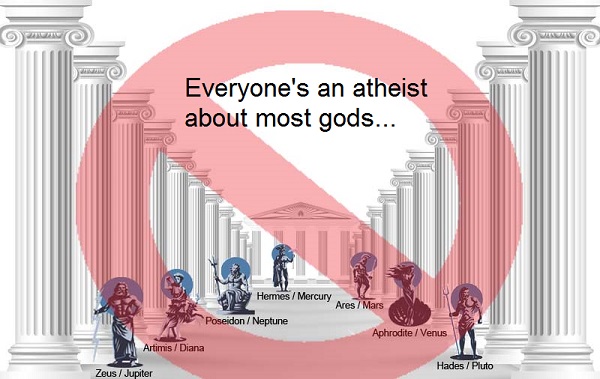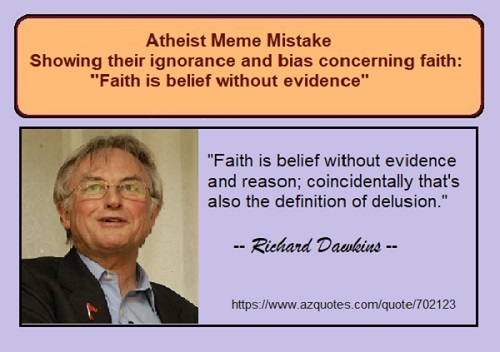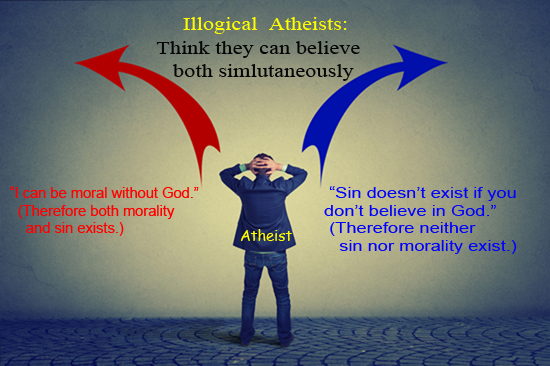Paley’s watch maker argument – an argument for the existence of God by the clearly apparent design in nature is one of the most powerful arguments for God’s existence. How do I know? One need merely take a look at all the skeptics who try (unsuccessfully) to refute it. From Youtube bloggers to high profile atheists like Richard Dawkins, doubters repeatedly try to show the argument invalid – and fail miserably. Why all the effort? Because it is so clear, so easy to understand, so obvious, that it is a powerful argument for the existence of God.
Category Archives: Atheism
Is the Bible full of fantastic creatures? Part 3: Cockatrice
The creature sculpted into the fountain above is the mythical cockatrice. It was not included in the below list from one atheist in his attempt to mock the Bible and the Christian faith for including what he considers unbelievable creatures:
“He follows a holy book with a jealous & genocidal god, ghosts, zombies, seers, devils, demons, witches, satyrs, unicorns, talking animals, a man who lived in a fish and a 7 headed dragon.”[1]
Like many atheists he’s grossly wrong in many of his presumptions. And since I’m sure someone with an anti-Bible axe to grind will point to the cockatrice as an unbelievable creature in the Bible I’ve included it. Though not mentioned in this atheist’s list, this is a good place to handle it – following an article on the satyr – because a lot of similar dynamics are involved. Of particular note is the use of Hebrew rhyme – the repetition of a single idea. In Is 34.14 we looked at the use of rhyme when a satyr – an idol for a pagan demonic god represented by a goat – was used in the context of judgment. In contrast here we see Hebrew rhyme used with the word the KJV translates as “cockatrice” in the context of the glorious reign of Christ on earth, in a passage about the effects of the curse being removed.
So what’s going on here? Is the Bible really referring to the mythical beast, a winged serpent with a rooster’s head and deadly gaze, hatched from a cock’s egg? Or is something else going on? With a little history and some good dictionaries, it’s easy to see both the intent of the word (a poisonous viper such as an asp or Egyptian cobra), and a likely reason why those more common words weren’t used. Continue Reading
Is the Bible full of fantastic creatures? Part 2: Satyrs, devils and demons

We continue now into our investigation of a claim made by an atheist who charges that the Bible is full of what he considers unbelievable natural and supernatural characters and creatures:
“He follows a holy book with a jealous & genocidal god, ghosts, zombies, seers, devils, demons, witches, satyrs, unicorns, talking animals, a man who lived in a fish and a 7 headed dragon.”[1]
In my previous article I dealt with unicorns and his misunderstanding of God as a “jealous & genocidal god.” Now we move onto satyrs – and as it turns out devils and demons fit in here too, so we’ll cover them instead of Jonah as I indicated in the previous article. Continue Reading
How to Answer Every Atheist Objection to the Existence of God

This is another installment in the series on how to answer atheists – in light of the many atheist memes out there. This article is a bit of a departure – instead of looking at graphical memes we’ll look at some of the overused but fallacious arguments. And since I was looking for the toughest arguments atheists present – you may or may not find memes for these: these particular arguments from atheists don’t necessarily lend themselves to a simple graphical presentation – though some are indeed out there. Continue Reading
Atheist Meme Mistakes: Morality and Sin
Many atheists proclaim themselves to be bastions of reason and logic. They consider themselves to be free thinkers who are correct in their rejection of God. They believe themselves to be superior in their thinking when it comes to matters concerning God. That’s ironic since it can be easily demonstrated that 1. Many atheist claims are illogical and 2. an atheist cannot live consistently within an atheistic worldview. Since many will miss this second point, let me emphasize it by repeating it, atheists cannot live consistently within an atheistic worldview. In fact, no one can live consistently within an atheistic worldview. That is a sign that the atheistic worldview is not true.
Case in point: memes on morality and sin. They are problematic for atheists, though atheists apparently have not realized that yet. Let me explain why. Continue Reading
Atheist Meme Mistake – We take atheism one god further

We are all atheists about most of the gods humanity has believed in. Some of us just go one god further.
For people who pride themselves on their reason and rationality, it’s rather amusing to see this atheist meme which is full of logical errors. I can’t say I’m surprised though. Atheists and evolutionists alike often appeal to logical fallacies in their futile attempts to bolster their false claims.
This atheist meme is attributed to Richard Dawkins from his book, The God Delusion. It goes like this:
“We are all atheists about most of the gods humanity has believed in.
Some of us just go one god further.“
This is supposed to be cute and clever, and I’m sure some think it is. Some think its true. What most don’t realize is it’s just another logically fallacious and philosophically flawed statement. Here’s 4 logical reasons why, with a biblical reason thrown in as a bonus. Continue Reading
3 Responses to the Deadly Atheist Meme Even Christians Get Wrong

As a corollary to their false belief that there is no evidence for God, many atheists are fond of using a wide spread but incorrect meme that express the idea that Faith is belief without evidence. In an article on The Stream titled “The Deadly Atheist Meme Even Christians Get Wrong” Tom Gilson addresses it as put forth by atheist cheerleader Richard Dawkins:
Faith is belief without evidence and reason;
Coincidentally that’s also the definition of delusion[1]
Tom’s approach: he uses the logical argument known as reductio ad absurdum to illustrate one reason why the statement is wrong. This type of argument demonstrates that the statement is false by supposing it to be true then illustrating that the logical and inevitable result or conclusion of the argument is patently absurd or false. Continue Reading
Conspiracy Theory: You Killed JFK (And other false claims and abuses of Evidence)
NO EVIDENCE. In what amounts to an abuse of evidence, atheists are fond of saying that there is no evidence for the existence of God. If you doubt that, take a look at this brief collection of atheists telling the world that very thing. But is that a true claim? When a proposition is not true, you would expect to find no evidence for that proposition.
Take for example the proposition in the title – that you, yes you dear reader – killed JFK on the fateful day – November 22, 1963 at Dealey Plaza in Dallas. All reading this could no doubt refute that claim. But those born after that date have a particularly easy and obvious piece of evidence that falsifies the proposition. The claim that they weren’t even born yet backed with a birth certificate to prove it. Continue Reading
Human and Dino tracks and Why Atheists Can’t Find Evidence of God – Part 2

Alvis Delk Human Dinosaur footprints at the Creation Evidence Museum
Before we get to the meat of the matter, I’m sure some are wondering “Where is Part 1?” Sometimes a better name for an article occurs to you after you’ve already published it. Such is the case with the previous article, which should have been titled something like:
Why Atheists Can’t Find Evidence of God (Part 1)
or
Why Atheists Can’t Find Evidence of Intelligent Design
or
Why Evolutionists Can’t Find Evidence of Creation
And while in this digital age of online publishing though it is possible to change the title, it still seems a bit unseemly, so I have left it with the original title. But for those who are wondering where Part 1 is, that’s where it is, titled with a question meant to get you thinking about one of the main reasons why atheists can’t find evidence of God (and why evolutions can’t find evidence of intelligent design.)
Part 1 lays out two reasons why atheists can’t find either evidence of God or Intelligent design; and in similar fashion why evolutionists can’t find evidence of Creation. Those reasons are: Continue Reading
Can you find what you deny exists? Three Guarantees
I recently read an article by Jonathan Witt – science writer and co-author of “Heretic: One Scientist’s Journey from Darwin to Design” which describes bioengineer Matti Leisola’s (the other co-author) gradual rejection of Darwinism and embrace of intelligent design. In his article titled “A Father, an Atheist Son, and a Darwin Heretic” Witt describes the attempt of a father to get his son – a scientist and an atheist – to consider the claims of intelligent design by reading Witt’s and Leisola’s book “Heretic.”
The son rejects even reading the book with a number of excuses: Continue Reading





